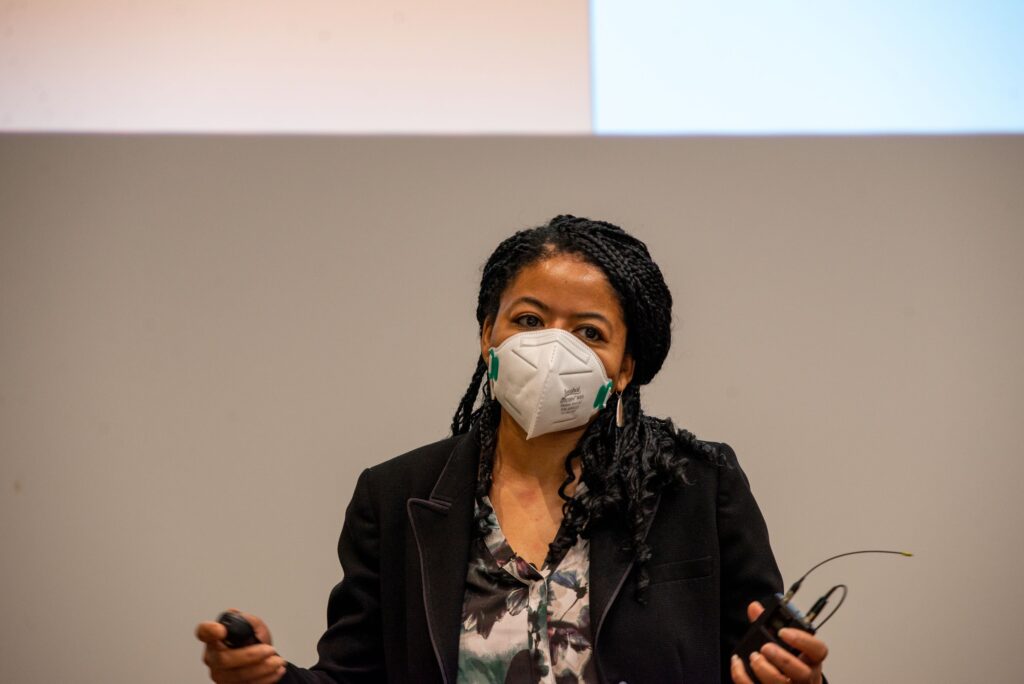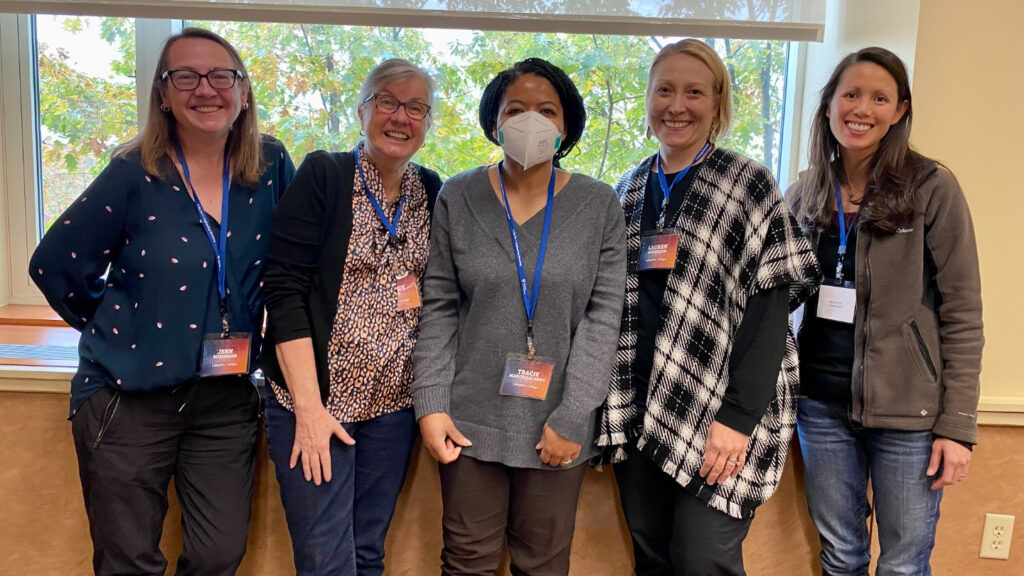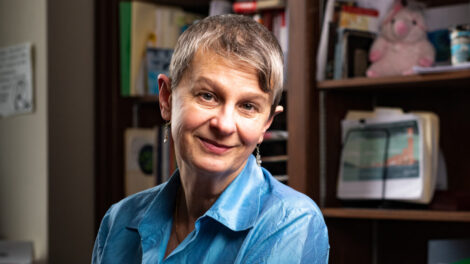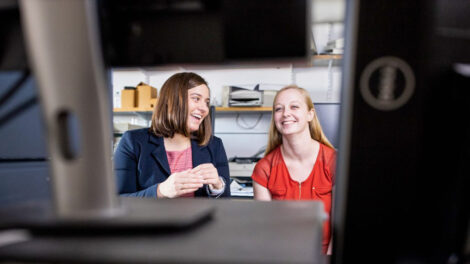Tracie Addy featured speaker at Penn State DEI conference
By Bryan Hay
Lafayette College had a high-visibility presence among representatives of Big Ten ++ schools who gathered recently at Penn State to begin the process of integrating principles of diversity, equity, and inclusion (DEI) into engineering undergraduate curricula.
Tracie Addy, associate dean of teaching and learning and director of the Center for the Integration of Teaching, Learning, and Scholarship, delivered one of the keynote addresses during the two-day DEI Summit, drawing from the recently published book What Inclusive Instructors Do: Principles and Practices for Excellence in College Teaching that she co-authored with Khadijah Mitchell, Peter C.S. d’Aubermont, M.D., Scholar of Health and Life Sciences and assistant professor of biology.

Tracie Addy, associate dean of teaching and learning and director of the Center for the Integration of Teaching, Learning, and Scholarship, delivered one of the keynote addresses at Penn State DEI Summit
Joining Addy at the summit were Lauren Anderson ’04, William Jeffers Director of Engineering; Wendy Hill, director of the Daniel and Heidi ’91 Hanson Center for Inclusive STEM Education; Jenn Rossmann, professor of mechanical engineering; and Lindsay Soh, associate professor of chemical and biomolecular engineering and department head.
The summit was motivated by proposed changes by ABET, the nonprofit organization that accredits college and university programs in applied and natural science, computing, engineering, and engineering technology, to strengthen the DEI criteria for accrediting engineering programs.
“Typically, people don’t want more accreditation criteria. But this is so important to the field,” Addy says. “This conference, and it was the reason why I was invited to speak, was really focused on how institutional teams can start to think about these new criteria around DEI, and go back to their institutions and build this momentum and make revisions to address these new standards.
“In general, engineering continues to face challenges around diversity and inclusion,” she adds.
While Lafayette is not part of the Big Ten ++ system, summit organizers included Lafayette representation, and Addy is grateful for the important work we do in undergraduate engineering.
“The workshop-format of the conference was a great opportunity for our Lafayette team to brainstorm ways to implement the new criteria into our engineering programs. We have a tremendous opportunity to be leaders in this area given Lafayette’s combination of engineering and the liberal arts and commitment to inclusive STEM,” Anderson says.

(L-R): Jenn Rossmann, professor of mechanical engineering; Wendy Hill, director of the Daniel and Heidi ’91 Hanson Center for Inclusive STEM Education; Tracie Addy, associate dean of teaching and learning and director of the Center for the Integration of Teaching, Learning, and Scholarship; Lauren Anderson ’04, William Jeffers Director of Engineering; and Lindsay Soh, associate professor of chemical and biomolecular engineering and department head.
The Engineering Division is currently partnering with the Hanson Center for Inclusive STEM Education on a number of key initiatives, including an evidence-based peer-mentoring program and departmental climate studies.
Rossmann says she’s glad to see ABET considering explicit criteria for the way engineering programs should be integrating DEI work into faculty development, student support, and engineering courses.
“ABET sets the minimum expectation for accredited engineering programs, and I hope we will exceed that expectation,” she says. “Many other participants at the summit found Lafayette’s recently revised language about ‘distinctive teaching,’ including the explicit description of faculty intentionally fostering inclusive learning environments, to be an inspiring move. Since this language is used in faculty evaluation and review processes, including for tenure and promotion, it makes our institutional values clear.”
Having the expertise and infrastructure of both CITLS and the Hanson Center, to support the development and assessment of faculty efforts, is another way Lafayette is a leader, Rossmann adds.
“That Tracie Addy was one of two keynote speakers for this summit represents acknowledgment of her own leadership, and I was proud to be part of Lafayette’s team,” Rossmann says.
The new ABET criteria are expected to be approved this year. Lafayette, Addy says, is well positioned to address them.
“We have a lot of resources in place to help us move forward with this,” she says, adding that small liberal arts schools like Lafayette have an advantage when it comes to DEI.
“Not all schools have an inclusive STEM center. That’s a pretty good structure for engineering,” Addy says. “This intimacy of our culture, and the relationships and centralization make things a lot easier. It’s really good for Lafayette to have a place in this conversation.”

